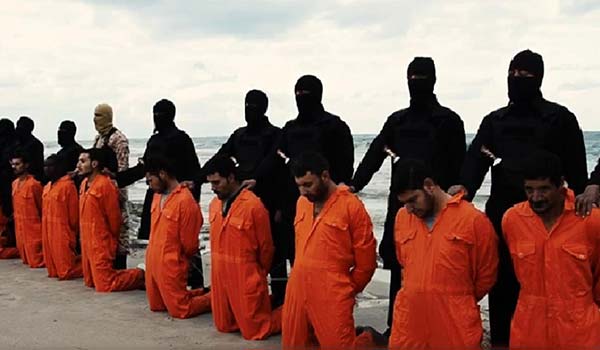Subtotal: $
Checkout
In February 2015, twenty Egyptian Coptic Christians and a Ghanaian friend were beheaded by ISIS militants on video. Martin Mosebach’s book The 21 explores the faith that led them to that moment and the surprising way their bereaved families responded. In a foreword to the new paperback edition, Archbishop Angaelos, Coptic Orthodox Archbishop of London, writes of how their martyrdom has reverberated around the world.
The world will never forget the image of those twenty-one men dressed in distinctive orange jumpsuits, paraded by their captors along a beach in Libya. The video production of their brutal execution was broadcast to instill fear into the hearts and minds of millions, but it failed to omit the most crucial part of what is now recognized as the martyrdom of the Twenty-One: the faithful, peaceful, and resilient utterance of the Lord’s name from their lips as they awaited imminent death. This declaration of faith has led to a revival of courage, and a confirmation of what it means to witness as a Christian, around the world. It has not merely transcended denominational lines throughout the Christian family, but has spoken to millions of people of all faiths (and none) who have been inspired by this active testimony.

The irony is certainly not lost when one looks at the seemingly powerful captors, wearing masks to protect their identities and digitally enhanced on screen to appear as if they towered over their “prey.” While the Twenty-One knelt peacefully, unmasked and exposed for the world to see, their executioners were brutal in a way that crossed any acceptable line known to humanity.
This tragedy is reminiscent of Christ, who was laid bare on the cross at Golgotha, made a spectacle for all to see and mock. Likewise, evil appeared to have triumphed as Jesus gave up His spirit on the cross; His resurrection was to take the world by surprise and give a gift that none other than God Himself could have presented through His willing sacrifice. The paradox of Christianity is most evident in the sacrifice on the cross and any martyrdom that follows it: “Death is swallowed up in victory. O Death, where is your sting? O Hades, where is your victory?” (1 Cor. 15:54–55).
I am grateful for the faithful depiction presented by Martin Mosebach, whom I am now privileged to call a friend, of these brave and resilient men and their courageous families, who have done the inconceivable in forgiving those who murdered their loved ones. Their faithful witness can be directly connected to the heritage of martyrdom in their church, which has lived under persecution for most of the last two millennia. The Twenty-One stand in a long line of historic and contemporary martyrs of the Coptic Orthodox Church, whose members have been made strong, resilient, faithful, and forgiving through this persecution.
The 21 is a necessary work that will shed light on the contemporary meaning of martyrdom and what it truly entails to live out one’s Christian faith regardless of the consequences. After all, the sacrifice presented by these simple workingmen by no means occurred in isolation, but is part of a global phenomenon of increased persecution of Christian women, men, and children, as well as of other religious communities.
The sacrifice of these Coptic Orthodox Christians from Upper Egypt and their companion from Ghana, working in Libya to support their families, is one that will resonate for generations to come. The martyrdom of the Twenty-One has touched and brought together the full breadth of Christian expression around the world and continues to lead to fruitful, committed collaboration in order to prevent similar atrocities from occurring again in any community.

Sign up for the Plough Weekly email
Already a subscriber? Sign in
Try 3 months of unlimited access. Start your FREE TRIAL today. Cancel anytime.






